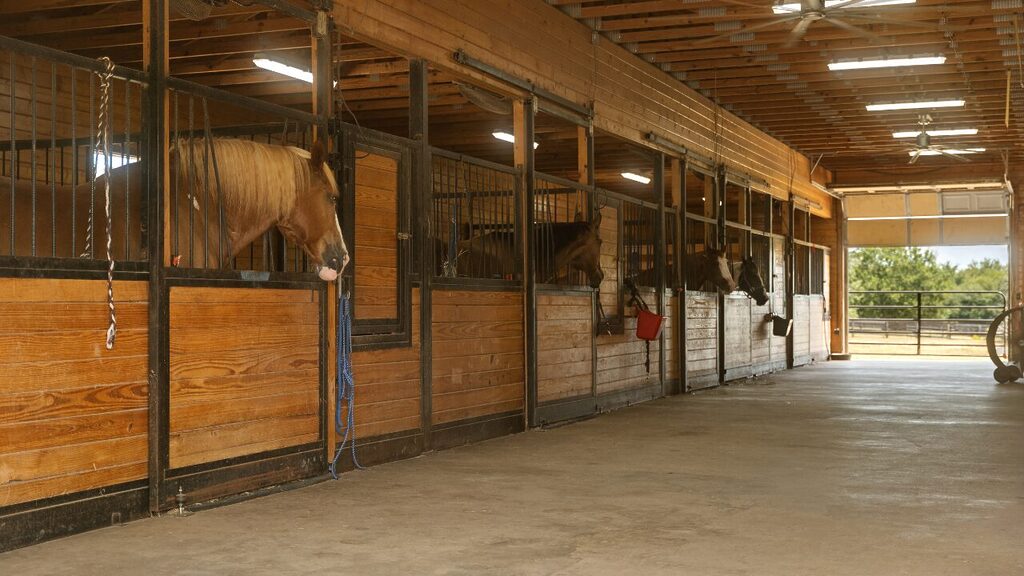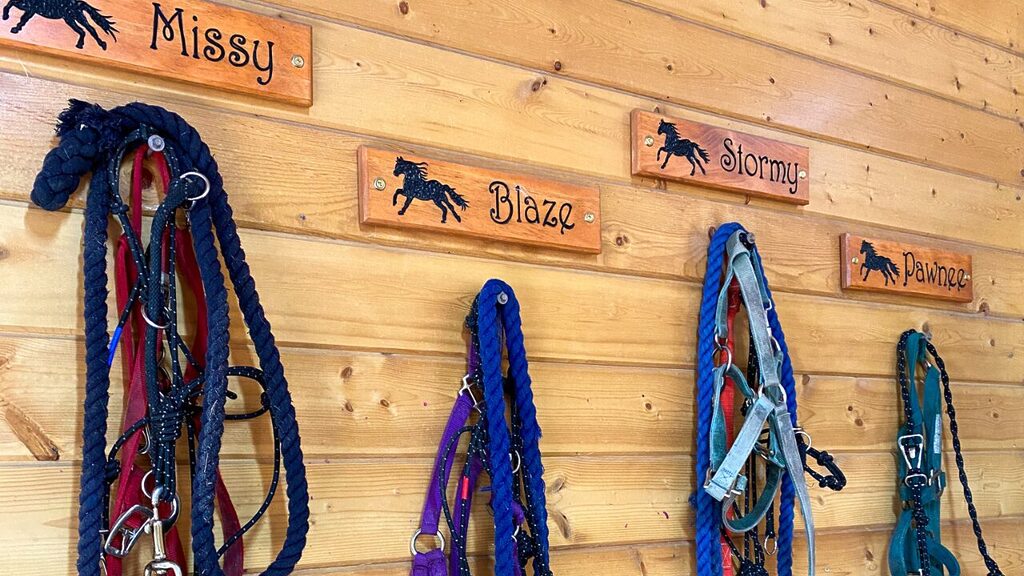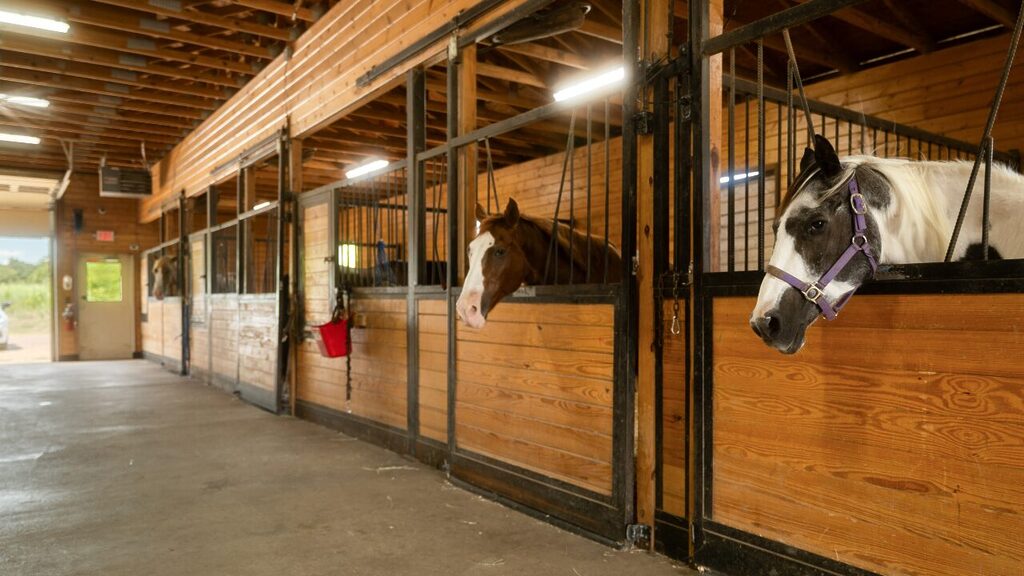At Texas Recovery Centers, equine therapy is a clinical, goal-oriented service that helps people practice recovery skills in real time. Horses are sensitive, herd-oriented animals that respond to human intent and body language. That sensitivity gives patients immediate feedback that is hard to ignore, which makes equine work a powerful complement to counseling, skills training, and relapse prevention. If you are comparing treatment options in Texas and want care that is experiential as well as evidence-informed, our equine therapy program can help.
What Is Equine Therapy?
Equine therapy uses structured, ground-based activities with horses to surface patterns that show up in daily life. Sessions are facilitated by a licensed clinician and an equine specialist and are designed to meet specific clinical goals that tie back to your treatment plan. As one of our specialists explains, horses mirror your behaviors and emotions, so patients get instant feedback that is honest and nonjudgmental. Many people say that this experiential approach helps them understand triggers, boundaries, communication, and stress responses in a way that talk therapy alone did not.

How Equine Therapy Helps in Addiction Treatment
Substance use disorders affect stress systems, relationships, and problem solving. In the arena, these same challenges appear in a safe and contained setting. Patients practice mindfulness, distress tolerance, emotion regulation, communication, and teamwork while they complete tasks with the horses. For skeptical patients who assume it is just time with animals, the outcomes feel different. The horse responds to anxiety, anger, avoidance, or confidence in the moment, which reveals what is getting in the way of recovery and what is working. This kind of feedback shortens the learning curve and makes therapy more concrete.
The Evidence and Benefits
Texas Recovery Centers follows an experiential, trauma-responsive model consistent with EAGALA standards, which emphasize safety, ethics, clear goals, and collaboration between a mental health professional and an equine specialist. Research on equine-assisted services shows improvements in stress regulation, self-efficacy, social functioning, and treatment engagement when programs are well designed and integrated with counseling. Clinically, we see benefits for people who prefer learning by doing, for those who shut down in traditional sessions, and for families who need to build trust and communication. Equine therapy is also a natural fit with DBT, since you must put mindfulness and emotion regulation skills into action while you work through a task with the horse.
What a Session Looks Like at Texas Recovery Centers
Sessions are private or small-group, and they are almost always on the ground, not riding. After a brief check-in and safety orientation, the team introduces a task based on your clinical goals, for example leading a horse through obstacles, setting healthy boundaries with halters and cones, or building a structure together and inviting the horse to engage. You decide on an approach, notice how the horse responds, adjust your plan, and try again. The horse’s feedback is immediate, which helps you test new behaviors without judgment. A debrief with your clinician connects what happened in the arena to triggers, coping, and relationships outside treatment. These insights then carry back into individual therapy, group work, and your relapse-prevention plan.

Who Does Equine Therapy Help?
We use equine work across levels of care and populations because the modality meets people where they are. Veterans who prefer not to talk can participate fully and still do meaningful work. Individuals dealing with anxiety, trauma, or grief often find the horses’ calm presence grounding. Families use equine sessions to rebuild trust, practice healthy boundaries, and improve communication in a hands-on way. Many of our horses are rescues, which patients relate to, since healing from neglect and abuse is a shared theme for both horses and humans. When people see that change is possible in the arena, they start to believe it is possible at home too.
What Makes Texas Recovery Centers Different
Experience matters. Our equine team includes specialists with nearly two decades of EAGALA-based practice and deep horsemanship backgrounds, which means sessions are safe, ethical, and purposeful. The work is embedded in a larger continuum of care, so what you learn with the horses connects directly to your clinical plan in residential, day treatment, or outpatient programs. We also align equine therapy with specialized tracks that serve veterans and first responders, and we regularly incorporate family sessions when they support long-term recovery. If you want a program that blends clinical rigor with experiential learning, our Texas equine therapy services are a strong fit.
Equine Therapy FAQs
Do you have to be a horse person?
No. Most patients have little or no horse experience, and all activities are tailored to your comfort level.
Is it safe?
Yes. Sessions are facilitated by trained professionals, and activities are selected to match your goals and skill level.
Is there riding?
Typically no, because the therapeutic value comes from observation, intention, communication, and problem solving on the ground.
How does this connect to the rest of treatment?
Your clinician brings insights from the arena into individual and group sessions, which accelerates progress across your plan of care.
Next Steps
If equine therapy sounds like a good fit, the easiest way to start is with a quick benefits check and an assessment. Our team will help you choose a level of care and decide how equine sessions can support your goals. You can learn more about related services on our outpatient programs page, explore family involvement on family programs, and begin with a fast insurance verification. If you have service-related needs, ask about veteran-focused programming during admissions so we can tailor your plan from day one.
Call to Begin
Ready to experience equine therapy as part of addiction treatment in Texas? Call Texas Recovery Centers or reach out through our contact form to schedule a confidential assessment today. One conversation can change your path forward.













